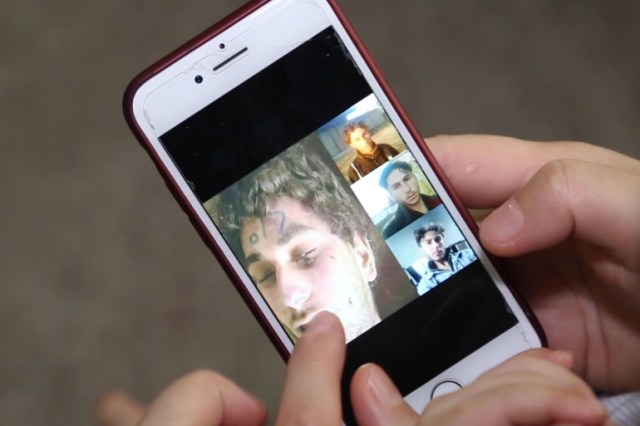“What is Caesar’s law?”, “What will result from its sanctions?”, “Will the Syrian regime fall by the law?”, And “What is the fate of civilians?” .. Perhaps this is one of the words most used by Syrians or those interested in Syrian affairs since We started talking about the law protecting civilians, known as the "Caesar" law, to the implementation of it today.
The "Caesar" law is the product of a shocking moment in Syrian families in 2014, when a defected cameraman for the Syrian Military Police revealed the photos of 11,000 people who died under torture in the prisons of the Syrian regime, most of whom were taken in hospital 601.
A former prisoner at the Mezzeh Military Hospital,
“Azrael in the hospital was a real person .. If he got angry, he would kill whoever he wanted.” Munir Al Faqir is a live witness to the pictures of Caesar, who is a former detainee at Mezzeh Military Hospital or “Hospital 601 ″, evoking part of the pictures that were He lives it daily with his fellow detainees.
"The anger of Azrael was one of the methods of death of the detainees, and there were people dying due to medical negligence, and others were praying from the security branches over the last breath," said Munir al-Faqir.
Munir, who was discharged from the hospital before Caesar was leaked to his photos, tells that when he conveyed to the families of the victims who he did not know what he saw, no one believed him, so the bathrooms and corridors were a place of mass killing, and they were forced, according to him, to walk over the bodies of their friends.
He tells that he saw "Nabil Al-Ahmar when he came and his soul came out at the door of the section where we were in the hospital and then took him to the bathroom." The toilet, according to Mounir, was the place where the bodies of the dead were collected before being transported to the car park where Caesar picked up a lot of A picture of the deceased under torture.
He went out
to inhale the air, so he came back with Caesar’s pictures. “At the beginning of the spring we were on a farm, and Mukhtar was complaining about asthma and needed to inhale the air, so he went out and said that he wanted to buy things, but he did not return.” Thus, Iman Al Waer from Homs tells Al Jazeera the story of her brother who lost It affected him after he left the house in April 2012. Iman described their daily search for an answer about Mukhtar's fate but to no avail, noting that they had waited for any exchange deal between the opposition and the regime and tried to use all tools to reach their brother, but the answer came in 2014.
“My sister in Lebanon contacted me and said to me, look at this picture, is it not the picture of Mukhtar? I did not believe.” Iman hid her knowledge of the fate that Mukhtar had met about her mother for fear of her, and kept the news locked up inside her, but after about a year, she told them what happened to Mukhtar.
She says, "I cannot believe how they killed him ... Mukhtar has never harmed anyone in his life."
Iman and her family are the same as the families of the thousands of victims whose Caesar photos have revealed their fate, and the families of others whose fate is unknown, they wish to be held accountable for the killing of Mukhtar and others who died under torture.
A parallel line to Caesar’s law,
Dr. Shadi Junaid, a member of the “Syrian Association for Missing and Prisoners of Conscience”, is one of the first workers on Caesar’s file. It is considered that there is a parallel and necessary line, and without it there is no value to the “Caesar” law, which is the achievement of justice.
In this context, Junaid said in his interview with Al-Jazeera Net that "the sister of one of the victims who appeared in the Caesar photos, filed a lawsuit in the Spanish courts against officials of the Syrian regime."
He adds that the current French foreign minister was also the one who filed a lawsuit to violate human rights in the French courts after seeing the photos of Caesar.
And Dr. Junaid concludes his speech that "Caesar's photographs were living evidence of the criminality of the regime ... It is true that the law was long overdue, but justice must be completed by trying all criminals, headed by Bashar al-Assad."

